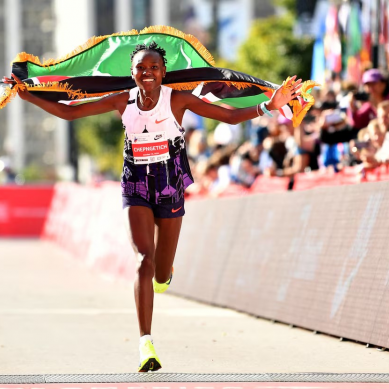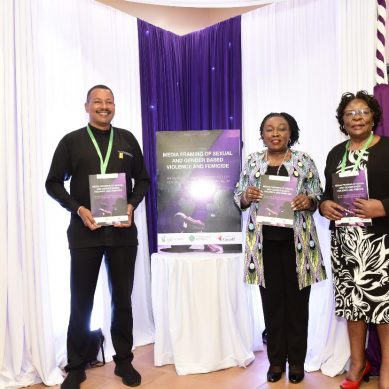
Politics is the field of human endeavour where public decisions are made and political leaders are chosen to lead and make the public decisions. If the field is polluted and distorted by militarisation and monetisation of the political decisions, let alone people’s choices of leaders, then both governance and leadership will be decided by the gun and money, not free choice of leaders by the people.
The quality of governance and leadership is likely to plummet to worrying levels. This is because governors and leaders will be in their positions, not because they have the qualities and skills identified by the people to lead and govern them, but because the gun and money have decided.
In Uganda, almost every aspect of human life and human endeavour has been militarised and monetised – sometimes over-militarised and over-monetised. In fact, elections in Uganda at all levels of society, depict over-militarisation and over-monetisation. While the Chairman of the “Independent” Uganda Electoral Commission, Justice Byamukama, has called for a law to curb monetisation of elections, it is obvious that he should have called for a law that integrates curbing both the militarisation and monetisation of elections in Uganda.
Of course, it is those who practice the two electoral vices – those in the Executive and the Legislature that would be tasked to initiate a Bill and pass it into law respectively, and the President of Uganda, Tibuhaburwa Museveni, would have to assent to it.
Unfortunately, the militarisation and monetisation of elections start with the president and end with the President. His politics and political goals in Uganda are sub-served by the two electoral vices, which have mushroomed because he desires that they be at the centre of governance, leadership and elections. To get such a law, therefore, a drastic change in the political mind-set of the president, which is almost next to impossible.
Without militarisation and monetisation of politics in Uganda then the president cannot tick as the perennial ruler of Uganda. Both the gun and money are integral to his style of governance and leadership. History has recorded that when the president wants certain constitutional provisions to change in his interest, he advances MPs in his National Resistance Movement in parliament to do the needful for him.
Even some MPs in the Opposition have fallen prey to money and forgotten that they are supposed to be the alternative government or that they are supposed to advise government.
Sometimes the president has ensured that the legislative process servicing his interest is simultaneously militarised just as money moves between hands. Many examples of simultaneous militarisation and monetisation of legislative processes exist, but perhaps the best examples are when the president desired that term limit and age limit were removed from the Uganda Constitution 1995 to allow him to rule Uganda uninterruptedly.
It is, however, during presidential and parliamentary elections, particularly the former, that militarisation and monetisation of both politics and elections have been neatly married, and thereby generating undesirable leaders and governors that the country would have been better off without.
In a sea of mushrooming poverty, the impoverished voters have been tuned to believe that they can, and should only, vote moneyed people as their leaders. Some Ugandans now believe that it is better for them to elect people with a military background. We have seen those with military background being secured militarily against the voters or their challengers during elections.
The hard-to-convince voters and the opponents have been given money either to withdraw from electoral processes or support those with money or on whose side the military has positioned itself. Increasingly blood has flowed and some deaths have occurred during elections. Following the recent military onslaught on a political candidate and a journalist in Kawempe North, there are fears that the presidential and parliamentary elections of 2026 might be the bloodiest we have seen since 1996 when President Tibuhaburwa Museveni offered himself to the electorate in a show of commitment to electoral politics.
Clearly, politics in general and elections in particular have been so polluted by militarism and money that it would require mind-set change from top to bottom, which is like climbing Mt Everest or reaching the deepest trench in the ocean.
While we are, as a country, so concerned about corruption in government, we are yet to be adequately concerned about the military and monetary corruption of politics and, for that matter, elections. This type of corruption does not attract the intervention of the Inspector General of Government (IGG), yet it is the worst form of corruption. It denies the country quality governance and leadership.
Military and monetary corruption is the mother of all other types of corruption in Uganda. Militarisation and monetisation of politics and elections excludes many Ugandans from both politics and elections. When so excluded, the victims do not meaningfully participate in determining the governance and leadership of Uganda. They are just sojourners, reduced to onlookers. Others decide to leave politics and elections altogether
Because of militarisation and monetisation of politics, political and budgetary decisions favour consumptive choices, a small group of people in power and prevent genuine development for the absolute majority of Ugandans.
Militarisation and monetisation and monetisation of politics and elections are the main tools being used by power to deny our people meaningful freedom, democracy, justice, sovereignty and independence and to distort citizenship and budgetary allocations in favour of foreigners and Movement cadres.
Indigenous leaders are bought and compromised, leaving the people leaderless and vulnerable to abuse and exploitation on a long-term basis. Many begin to manifest as if they are foreigners in their own country. They are losing what used to be theirs – land, past, future.
Militarisation and monetisation of politics and the choice of leaders (elections) is the reason why transparency and accountability mechanisms cannot work effectively and why our institutions are decaying, collapsing or dysfunctional, unable to deliver goods and services to Ugandans satisfactorily.
Last but not least, militarisation and monetisation of politics and choice of leaders and/or workers is the reason why our economy loses Ush10 trillion – $2.721 billion (Alobo, 2024) – or Ush20 trillion – 5.442 billion – (The Independent, 2021) to a miniscule of official actors in government many leaders in the economy are military people or retired military people but still strongly connected to the military and with enormous powers of decision-making on the flow of money.
According to the IGG, only 35,000 people of a national population of 45 million, work for the government and have access to our money, which they frequently put to personal use or to their families’ use. However, of the 10 trillion shillings stolen, most of it goes in the pockets of 10 per cent of the 35,000 people. The 10 per cent is a group highly connected to power. This could explain why none of them has been nabbed for corruption and why they fight tooth and nail to ensure there is no change in the status quo.
For God and my country.
- A Tell report / By Oweyegha-Afunaduula / Environmental Historian and Conservationist Centre for Critical Thinking and Alternative Analysis (CCTAA), Seeta, Mukono, Uganda.
About the Centre for Critical Thinking and Alternative Analysis (CCTAA)
The CCTAA was innovated by Hyuha Mukwanason, Oweyegha-Afunaduula and Mahir Balunywa in 2019 to the rising decline in the capacity of graduates in Uganda and beyond to engage in critical thinking and reason coherently besides excellence in academics and academic production. The three scholars were convinced that after academic achievement the world outside the ivory tower needed graduates that can think critically and reason coherently towards making society and the environment better for human gratification. They reasoned between themselves and reached the conclusion that disciplinary education did not only narrow the thinking and reasoning of those exposed to it but restricted the opportunity to excel in critical thinking and reasoning, which are the ultimate aim of education. They were dismayed by the truism that the products of disciplinary education find it difficult to tick outside the boundaries of their disciplines; that when they provide solutions to problems that do not recognise the artificial boundaries between knowledges, their solutions become the new problems. They decided that the answer was a new and different medium of learning.
Alobo, Prosy (2024). Ush10 trillion is lost annually to corruption – IGG Kamya. Nexus Media, October 2 2024. https://nexusmedia.ug/shs10-trillion-is-lost-annually-to-corruption-igg-kamya/ Visited on 9 March 2025 at 15:10 pm EAT
Khisa, Moses and Sabastiano Rwengabo (2023). Militarism and the Politics of Covid-19 Response in Uganda. Armed Forces Soc . 2023 Apr 17:0095327X231162848. doi: 10.1177/0095327X231162848 https://pmc.ncbi.nlm.nih.gov/articles/PMC10111159/ Visited on 9 March 2025 at 12:24 pm EAT.
Kisakye, Frank (2023). Is a Money free election possible for Uganda’s politicians? The Observer, September 13 2023. https://observer.ug/news/is-a-money-free-election-possible-for-uganda-s-politicians/ Visited on 9 March 2025 at 12:15 pm EAT.
Liam Taylor (2022 ).How the Army is Swallowing the Uganda State: When civilian Institutions are Undermined, Soldiers Step in. ). FP, August 15 2022 https://foreignpolicy.com/2022/08/15/uganda-museveni-military-army-state-power/ Visited on 9 March 2025 at 12:41 pm EAT.
Makerere University School of Law (2023). Blog, November 27, 2023Book on Militarisation and Development in Uganda Launched. https://law.mak.ac.ug/book-on-militarization-and-development-in-uganda-launched/ Visited on 9 March 2025 at 12:35 pm EAT.
Nakisanze Segawa and Apophia Agiresaasi (2021). Beyond Dollars: The real cost of Monetised Elections. Global Press Journal, 2 December 2021 https://globalpressjournal.com/africa/uganda/voters-choose-instant-payoffs-cost/ Visited on 9 March 205 ar 11:49 am EAT.
Nile Post News (2025). Byabakama Calls for Law to Curb Monetisation of Politics. Nile Post News 7 March 2025 https://nilepost.co.ug/news/246459/byabakama-calls-for-law-to-curb-monetisation-of-politics Visited on 9 March 2025 at 11:42 am EAT.
The Independent (2021). Uganda loses UG 20 trillion annually to corruption -IG. The Independent, December 5 2021. https://www.independent.co.ug/uganda-loses-ugx-20-trillion-annually-to-corruption-ig/ Visited on 9 March 2025 at 15:15 pm EAT
WFD (2020). The Cost of Politics in Uganda. WFD, 29 October 2020. https://www.wfd.org/what-we-do/resources/cost-politics-uganda Visited on 9 March 2025 at 12:09 pm EAT.







